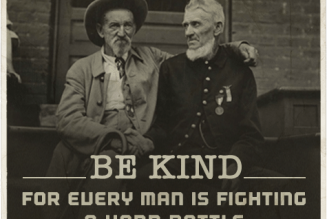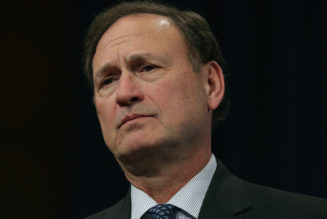As a number of his tweets indicate, Jordan Peterson disagrees with Pope Francis about social justice. But is this an authentic disagreement in substance? Or is it merely an equivocation in which the term “social justice” is understood in one way by Peterson and in a different way by the Pope?
Peterson’s understanding of “social justice” is presumably shaped by his years as a professor both at Harvard and the University of Toronto. “Social justice” in these contexts includes the idea of equity—that every group should be proportionately represented in every endeavor. For example, in his book How to Be an Anti-Racist, Boston University professor Ibram X. Kendi writes, “Racial inequity is evidence of racist policy.” If Blacks, Asians, Latinos, and whites are not equally represented in all endeavors in society, then racism is the explanation.
Yet, as Black economist Thomas Sowell argues,
Any ‘under-representation’ of any group in any endeavor can be taken as evidence or proof of discriminatory bias. But those who argue this way cannot show us any society—anywhere in the world, or at any time during thousands of years of recorded history—that had all groups represented proportionally in all endeavors.
He notes that the National Hockey League has more players from Sweden than California, even though California has almost four times the population of Sweden. This “under-representation” of Californians is not explained by bias and discrimination against them, but rather by the fact that more people grow up playing hockey in Sweden. Sowell adds, “If there is not equality of outcomes among people born to the same parents and raised under the same roof, why should equality of outcomes be expected—or assumed—when conditions are not nearly so comparable?” This is not to deny the existence of racism, but rather to deny that racism and racism alone explains all racial disparities, as Edward Feser points out in his fantastic new book, All One in Christ: A Catholic Critique of Racism and Critical Race Theory.
Equity is even more obviously problematic when considering men and women. If half of coal miners are not women and half of kindergarten teachers are not men, is the only explanation of this difference really injustice and sexism? No one disputes that part of this inequity may indeed be due to sexism, but should we assume that all the difference is the result of sexism and sexism alone? There is another plausible explanation for why more men are coal miners and more women are kindergarten teachers. On average when comparing the sexes, men take more physical risks and women value working with people more than things. These differences are not caused by patriarchal oppression. As recent research has pointed out, the average differences between men and women increase, rather than decrease, in societies that have less patriarchal oppression, like Sweden and Norway, in comparison with societies with more patriarchal oppression, like Algeria and Afghanistan. If a cause is reduced, the effect should be reduced. But reducing patriarchal oppression does not reduce the differences on average between men and women. When women have more freedom, they tend not to want to be coal miners, oil riggers, or loggers. So, when Peterson hears “social justice,” he presumably thinks in part of Kendi’s equity. He rejects equity, so he rejects “social justice.”
Pope Francis’ understanding of “social justice” reflects Catholic social teaching. I’ve summarized elsewhere seven principles of Catholic social teaching, which include respecting every individual human being, promoting the family, protecting property rights, working for the common good, respecting workers, and pursuing peace. Catholic social teaching is not the same as Kendi’s sense of equity. The term ‘equity’ appears just twice in the Catechism of the Catholic Church. “Justice toward men disposes one to respect the rights of each and to establish in human relationships the harmony that promotes equity with regard to persons and to the common good.” But note that the term equity, as used here, has no connection to group identities, let alone the idea that if all groups are not equally represented in all endeavors of society that the only explanation of this is injustice. In the Catechism, the only other instance of equity is this one:
There exist also sinful inequalities that affect millions of men and women. These are in open contradiction of the Gospel: Their equal dignity as persons demands that we strive for fairer and more humane conditions. Excessive economic and social disparity between individuals and peoples of the one human race is a source of scandal and militates against social justice, equity, human dignity, as well as social and international peace.
In this case too, we do not find Kendi’s sense of equity, but rather something much more modest. If all individual human beings have intrinsic dignity and value, then we have an obligation to work to ensure that they live in fair and humane conditions, including the equality of opportunity. If a particular group is excluded from equality of opportunity (as occurred, for example, during the apartheid in South Africa), this is contrary to social justice. But equality of opportunity, fair and humane conditions for all human beings, is not the same thing as equality of outcome (equity in the ‘social justice’ sense as used on university campuses).
Peterson writes, “There is nothing Christian about #SocialJustice. Redemptive salvation is a matter of the individual soul.” Again, the issue is what exactly is meant by social justice. If they are to follow Jesus, Christians must love others, including their enemies. If they are to follow Jesus, Christians must be mindful of the poor in body and in spirit. According to the Gospel of Matthew in chapter 25, there is an intrinsic connection between the salvation of the individual soul and the care of the vulnerable. Christ “the King will say to those on his right, ‘Come, you who are blessed by my Father; take your inheritance, the kingdom prepared for you since the creation of the world. For I was hungry and you gave me something to eat, I was thirsty and you gave me something to drink, I was a stranger and you invited me in, I needed clothes and you clothed me, I was sick and you looked after me, I was in prison and you came to visit me.’” If Peterson disagrees with this, and I doubt he does, his beef is not with Pope Francis but with Jesus.
On the other hand, “social justice” as the term is used at universities typically means an endorsement of a very specific set of political policies to care for the hungry, thirsty, and vulnerable. At universities, it is often assumed that to be for “social justice” is to be for socialism.
No Christian can deny the duty to care for the poor, but Christians can and should try to discover the best means to care for the poor. Is this direct action as undertaken by the Missionaries of Charity founded by St. Mother Teresa? Is this massive governmental social programs of welfare? Is this promoting business so as to provide well-paying jobs for more people? Is the best way to help those in need a combination of approaches? Are there unforeseen negative side-effects of some approaches? It may be that a variety of approaches is best, opening up room for Christians to undertake different ways to help those in need. Christians of good will can and do disagree about what specific policy proposals help those in need. Some may think raising the minimum wage by three dollars helps the poor because it gives them more take-home pay. Others may think raising the minimum wage by three dollars harms the poor because it will result in fewer jobs, and fewer jobs means less opportunity to gain the experience needed for better jobs.
Catholic social teaching is not a specific public policy requirement that sees a single solution for the problems of the poor—namely, a large governmentally administered solution. Indeed, Catholic social teaching includes the principle of subsidiarity, according to which “a community of a higher order should not interfere in the internal life of a community of a lower order, depriving the latter of its functions, but rather should support it in case of need and help to co-ordinate its activity with the activities of the rest of society, always with a view to the common good.” Indeed, “The principle of subsidiarity is opposed to all forms of collectivism. It sets limits for state intervention.” So, social justice according to Catholic social thought differs radically from a socialist conception as found on many university campuses. For this reason, as a matter of official teaching, the Catholic Church rejects Marxist liberation theology.
Is Jordan Peterson’s disagreement with Pope Francis merely verbal or actually substantial? The answer to this question depends in part on how exactly we define the term “social justice.”










